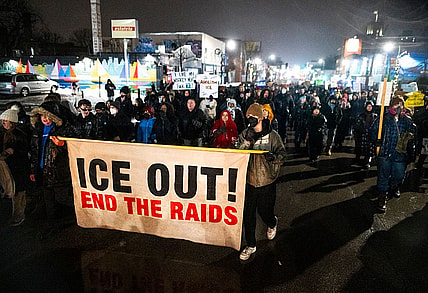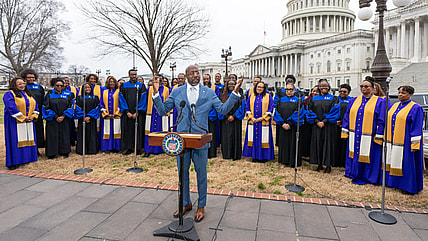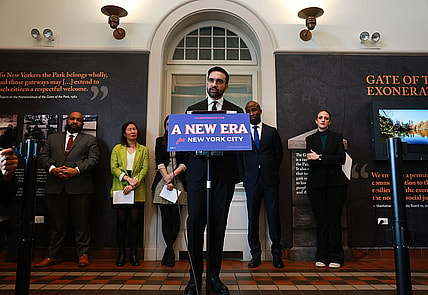All Articles

Black leaders say Trump's presidency has been anything but carrying out MLK's dream of an "oasis of freedom and justice."

"The Civil Rights Act did not give Black people special treatment," said the youngest daughter of Dr. Martin Luther King,…

Nike and LeBron James are facing renewed criticism over the “Honor the King” colorway tied to Dr. Martin Luther King…

“Donald Trump has zero interest in uniting this country or recognizing its history and diversity," said NAACP President Derrick Johnson.

"It's like unconscionable what we see now," said the son of Dr. King, who urged that federal law enforcement be…

Don Lemon and Nicki Minaj are fighting after the rapper condemned Lemon for covering an anti-ICE protest at a Minneapolis…

Minneapolis protesters disrupted Sunday service at Cities Church after claims surfaced linking a pastor, David Easterwood, to ICE leadership.

Raphael Warnock and HBCU choirs bring “Total Praise” to Capitol Hill in tribute to Richard Smallwood
Raphael Warnock joined Tim Scott and HBCU choirs on Capitol Hill to honor gospel icon Richard Smallwood with “Total Praise.”

"He's seeing the writing on the wall. He's realizing that people are not playing," political strategist Amber Sherman told theGrio.

Advocates say the Trump's latest move sends a global message to world leaders and threatens the momentum for global reparations.

A source close to Harris told theGrio it was the former Vice President's first visit to the National Civil Rights…

According to the New York Times, critics are side-eying Mamdani's rollout of five deputy mayors; one was Latino, but none…

Critics say President Trump is threatening to invoke the Insurrection Act to "enforce his own reign over the country."

Former Texas Democratic Party executive director Jamarr Brown cautioned against reading too much into the recent poll.

